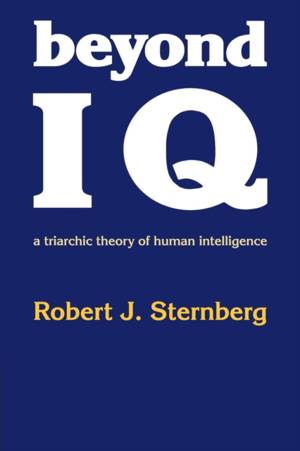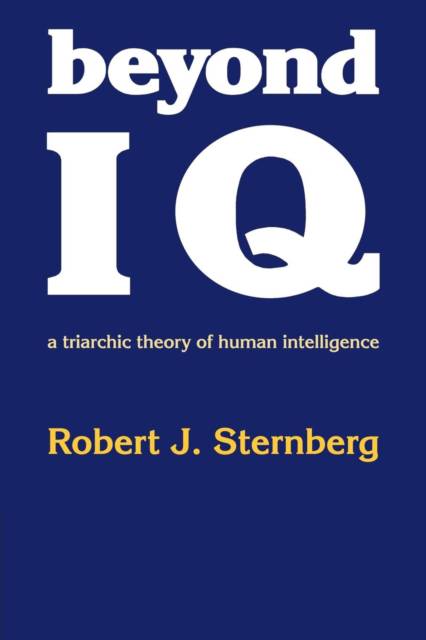
- Afhalen na 1 uur in een winkel met voorraad
- Gratis thuislevering in België vanaf € 30
- Ruim aanbod met 7 miljoen producten
- Afhalen na 1 uur in een winkel met voorraad
- Gratis thuislevering in België vanaf € 30
- Ruim aanbod met 7 miljoen producten
Zoeken
Beyond IQ
A Triarchic Theory of Human Intelligence
Robert J Sternberg, Sternberg Robert J
Paperback | Engels
€ 100,95
+ 201 punten
Omschrijving
First published in 1985, this book presents a 'triarchic' theory of human intelligence that goes beyond IQ in its conceptualisation and implications for assessment. The theory has three parts. The first deals with relations between intelligence and experience; the second, with relations between intelligence and the external world; the third part with relations between intelligence and the internal world of the individual. Robert J. Sternberg begins by sketching the history of intelligence research. He then outlines the three parts of the theory and adduces supporting evidence, including evidence from studies of 'practical' as well as 'academic' intelligence. He considers the issues raised by exceptional intelligence and by intelligence testing. His conclusions will be of interest to all those concerned with intelligence, its development and its measurement.
Specificaties
Betrokkenen
- Auteur(s):
- Uitgeverij:
Inhoud
- Aantal bladzijden:
- 432
- Taal:
- Engels
Eigenschappen
- Productcode (EAN):
- 9780521278911
- Verschijningsdatum:
- 28/12/1984
- Uitvoering:
- Paperback
- Formaat:
- Trade paperback (VS)
- Afmetingen:
- 152 mm x 227 mm
- Gewicht:
- 557 g

Alleen bij Standaard Boekhandel
+ 201 punten op je klantenkaart van Standaard Boekhandel
Beoordelingen
We publiceren alleen reviews die voldoen aan de voorwaarden voor reviews. Bekijk onze voorwaarden voor reviews.







